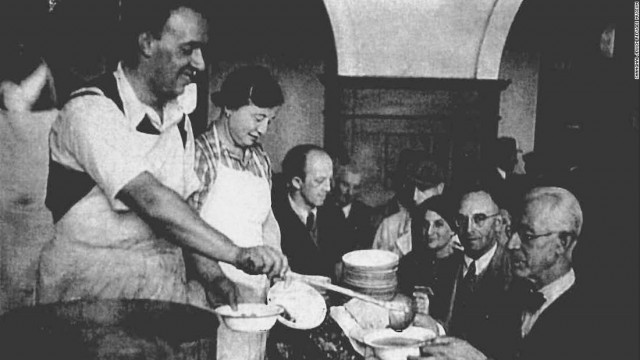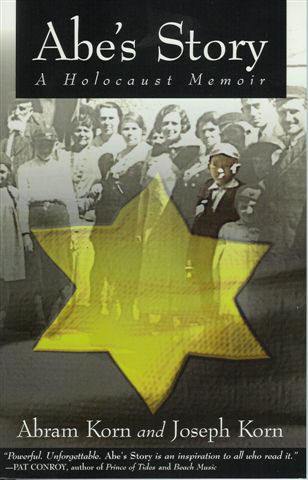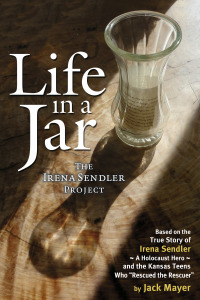Return to Witnesses
Jacques Lipetz
And the story related to the Jewish Refugee Committee of Manila (JRC)

Jacques Lipetz, Ph.D.
“The Jewish colony in Manila was a mixture of German Jews who hailed largely from Breslau and Frankfurt, a variety of other European Jews from Eastern Europe mainly, a number of Sephards from Lebanon, Syria and Iraq and us.”
It was in March 1945 that my first Seder in freedom occurred.The first in many years, the first after the start of the furyof war, the frightening escape from the Nazis, the day-to dayfears of life under Japanese occupation. Looking back, thisoccupation was benign compared to the horrors of the Nazis, butwhat loss of freedom is benign? What security lies in notknowing if there will be a tomorrow.
The Jewish colony in Manila was a mixture of German Jews who hailed largely from Breslau and Frankfurt, a variety of other European Jews from Eastern Europe mainly, a number of Sephards from Lebanon, Syria and Iraq and us.
Us, we were five Belgian Jews who escaped from Antwerp, fled through France, Spain and Portugal to arrive in the United States only to be told that we were not allowed to remain. Believing that the Philippine Islands were safe haven, we crossed the Pacific on a tramp Norwegian steamer, whose captain warned us regularly that there were German submarines in the area. We arrived in Manila in May 1941, to await our “quota number” . In December 1941 , the war became a world war, as on December 8 (our time) the Japanese entered the war with a vengeance.
We were my father Abraham then in his late 30’s my mother Gusta 10 years younger, I was 9, my brothers Leon 7 and Eric almost 6. We were in an adventure, but a very scary one. The language was strange and new, the climate hot and humid. We slept under tents of netting to avoid being totally devoured by mosquitoes.Of strange animals and insects there was no dearth.The food especially after the beginning of the occupation, consisted mainly of rice and fish. For variety we had fish and rice.
For a while it was safe, perhaps for my parents, but for me it was daily anxiety sometimes bordering on terror, Children my age who spoke English and no French, played a game they called football which did not resemble the game I knew in Belgium . Try as I might I found myself am outcast from the English speaking American children and from the German speaking Jewish children.They felt and said I was different.. and they were right.
We spent the years under Japanese occupation with increasing deprivation. Food became ever scarcer The occupying army more menacing and the hope of repatriation as neutrals never materialized. As Belgian citizens we were not kept long in the concentration camp we were clearly treated as enemy aliens.There was not, that I can remember, any overt anti Semitism by the Japanese despite urgings by the Nazi colony who were also in Manila. In other stories I will expand on these events.
My brothers and I were enrolled in a school run by Catholic brothers who did little to staunch the anti Semitism of the non-Jewish students. I remember being taunted about being a “Christ killer” I didn’t even know who “Christ” was. The Jewish students, and there were more than a few of us. were forced to be present during catechism class, and few opportunities were missed to offer us the chance of conversion.
There was a synagogue in Manila, Temple Emil founded some years earlier and housed in a yellow Moorish style building. It had a sanctuary, library classrooms and many of the things one would find in a synagogue in other parts of the world. We had a rabbi Joseph and a cantor, the wonderful chazzan Joseph Cysner who was a bachelor German refugee and lived with his mother. He was also our melamed and , even during, or rather between air raids, I remember taking two street cars to learn Chumash, hear music and talk to Mr. Cysner. The lesson I recall most clearly was an introduction to Rashi, his comment on the Genesis story where Joseph was thrown in the well and the well was empty.
I digress, the details will be filled in. Now I want to write about Passover in 1945. We were liberated by the Americans in late January. That is the Japanese were out, but so was running water, electricity , garbage collection, food and any amenities. The city was almost entirely destroyed. What had been referred to as the “Pearl of the Orient” was rubble and the not so subtle smell of decaying bodies. By grace of G-d, the ultimate dayan emet, the part of the city we lived in was spared. (Al tirah avdi Yaakov…was not yet in my vocabulary but a year later the phrase appeared in my Bar Mitzvah Haphtorah !.)
Pesach was approaching. Our synagogue was a pile of rubble, our community weak, separated and lacking leadership. Or perhaps all were so weakened that leadership could not be exercised. Among the Americans were two Rabbis. One tall and the other shorter and more heavy set. One rabbi was I believe named rabbi Gordon, the other I don’t remember. They wore army uniforms and on their collars silver replicas of the tablets,Jews in uniform, on OUR side. I remember that among the first GI’s to liberate us was one wearing a mezuzah on a chain around his neck. Jews were on the winning side !! soldiers were not to be feared.
So in March we were informed that there was to be a Seder, maybe two I don’t remember for ALL the Jews, soldiers, sailors and civilians to be run by the US army. But where? Few buildings remained that were suitable. However, the race track which was called —–Park was available. Not only was Uncle Sam going to give us a Seder, but he also made arrangements, in the midst of a war to have a jeep sent to 46-48 Panaderos where we lived to bring us on a rocky , bumpy and dangerous ride to a Seder. As I remember, all Jewish civilians who had survived were invited, picked up and returned courtesy of our Uncle. For years during the Seder the phrase ” with a mighty hand…” is said I remember the springless jeeps that carried usto the .Seder of liberation in 1945.
I don’t remember many details of that evening. I do remember the first real Matzoh. and staying up past midnight. I remember black out precautions still in effect, and armed soldiers guarding the proceedings. I remember marveling at the novelty of being cared for rather than mistreated by soldiers. I remember a sense of caring by the Jewish GIs and how surprised many of them were that there were Jewish civilians in Manila. I still have the memory of a unique experience but the details are submerged. Submerged in over a half century of life.
The mah nishtanah, I believe was sung by one of my classmates. Somehow I think it was Franz Ephraim, who sang beautifully and was bar-mitzva’d the year before. How the service was conducted and what and how we ate, I can’t recall. I doubt however that anyone since the Exodus had so sweet a Pesach. As I write this there are tears clouding my vision,they taste salty so this is my part of the Seder.. the saltwater.
The ride home that night was long and probably dangerous. It was dark, the roads were filled with shell-holes and enemy snipers were still in the city. We made it back, carrying some Matzoh and perhaps other goodies. Most of all I carried back a memory which I want to leave as a legacy. Teach each generation as if YOU had been to the exodus. I have.
Since that Seder, I have passed through my own Mitzraim, Soon I will conduct another Seder with loved ones and friends. It is not the same as the first one I conducted, when I first put these words on paper. Gan Eden has been enriched as we have lost family over the years, May Ha kodesh boruch hu, who has spared me from the flames of the Holocaust, accepted my Teshuvah, and given me life accept my thanks and attempts to bring Seder to my life.
First draft 4/7/89
Revised 2/5/95
Copyright 1997 Jacques Lipetz. All Rights Reserved




